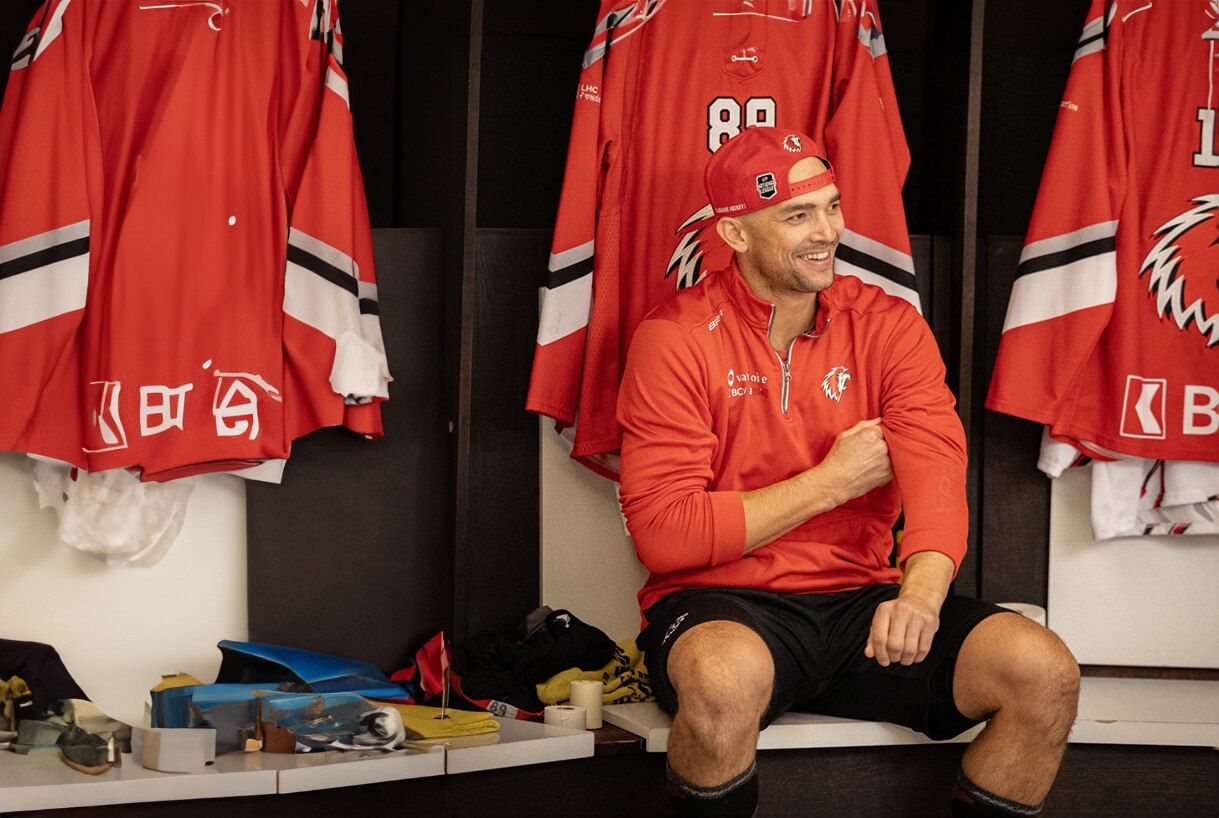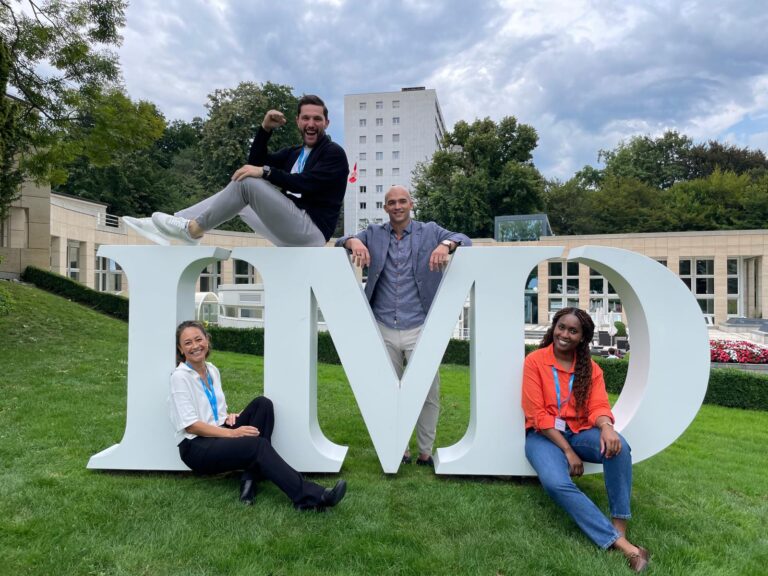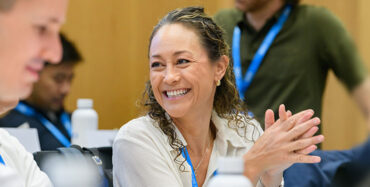
Earlier this year, when Cody Almond stepped in front of an audience to talk about how to remain competitive in the sports industry during challenging times, it marked the first time in nearly 20 years that he had done so in an academic environment.
Drafted into the world of professional ice hockey at 17, Almond has played in the National Hockey League, the American Hockey League, and the Swiss National League and has competed in two World Championships and one Winter Olympics.
This is why, when he decided to take part in the Foundations for Business Leadership program, it came as an interesting choice for a man who had spent much of his professional career navigating plays on the ice rink as opposed to presenting business plans to a boardroom of executives.
“I have been a player for 15 years and I have always taken the initiative to independently study and be well-read. But formally, I was not able to move into higher education and have always had a busy schedule, so it was ambitious to jump right into IMD and into the deep end with so many accomplished executives and managers,” said Almond.
“But as the weeks went by, I started to find my stride and gain some confidence in this world and new landscape, learning who I am off the ice and how others view me in the corporate world.”
What Almond noticed most about the experience was the active listening in the room and the quality of questions his colleagues asked on the course.
“There are concepts that you have to digest, reflect, and consider with an open mind.”
Another thing that stood out to him was the approach of the professors who, when challenged or confronted about something, showed their willingness to consider new perspectives and ideas.
“I was grateful to learn as much as I did from my other colleagues,” said Almond. “Just the way they would interact with the professors, the way they would interpret information, some of the concepts that they would produce, and the discussions in class. I gained a lot of insights during those rich exchanges in the auditorium.”
His time on the course has also allowed him to contemplate who he is as a leader, harnessing both what he has learned from the world of sports, as well as outside of it. It is this combination of knowing how to inspire a team and help them perform to their best level, mixed with those in the business world, that excites Almond about the future.
“There’s a lot of things that apply to both worlds,” said Almond. “The number of skills that you gain from a professional sports career is unique. Sometimes they’re intangibles, where they’re difficult to measure, but they are essential and transition effectively into the business world.”
“The way that I look at leadership is that it is very specific to the individual,” Almond noted. “I don’t think there is one form of leadership or one view or path that works. It’s related to who’s in that role, what their strengths are, and how they can achieve the best collaboration with the group, and everyone does that differently.”
“In my role as a player, something unique to me is that I have always been very versatile,” explained Almond. “I could fit into a first-line scoring role. I could fit into a fourth-line, defensive aggressive role. But also, in terms of my character, if I was put in a leadership position, which most seasons I was, I adapted my leadership to how the team needed it to be.”
“I had the privilege to observe several elite leaders throughout my career and have found the approach that works for me,” he continued. “Ultimately, it is all about how you can contribute to the group effectively to achieve team growth. My philosophy as a leader is simple, ‘leave the jersey better than you found it’. This is something I have always strived to achieve and applies to the business world as well.”
For Almond, building a healthy culture within the organization and communicating are key to his leadership journey in the sports world, and are key assets that make teams successful in the long term.
“It’s an important skill to be able to understand how you can contribute most effectively, use the strength of the people around you, and align people to strive for the same goal. It’s an art that requires some finesse and a good feeling for managing people and understanding people,” he said.
“When you are building a culture in an organization, as a manager, you are the one that sets the tone for what the standards are and how your organization operates. This is a direct correlation to how you treat people. That is such a crucial thing.” Cody Almond
When contemplating what kind of skills leaders should consider for the future, Almond believes it’s down to understanding how to best communicate with your team and being open to developing and adapting your approach.
“It’s important that leaders recognize the environment that they are in and continue to grow and change. When I look back at my career, I was part of two very different eras of hockey, and I’ve had to navigate my way through that,” he noted.
“Today’s generation faces different expectations, and it is more demanding than ever. As a leader, you need to adapt to your crowd and present your information in a way that resonates with them. Emotional intelligence is something that’s playing a much more important role. Collaboration and humility are such important components, as well as being able to collaborate with a group and tap into everyone’s knowledge and work collectively for the better of everyone.”
Looking forward, Almond is considering lots of different possibilities, but what he is drawn to is being able to pass on his knowledge to younger generations in the ice hockey profession.
“With IMD, gaining that experience and knowledge, it’s opened my mind up to some other potential opportunities,” he said. “I’m certainly not limiting myself to staying in the hockey world, but at the same time, I’ve had the privilege to work with and learn from a lot of very accomplished people. I want to pass that on and contribute to the next generation.
“Throughout my playing career, I have acquired skills and a perspective I could not have learned any other way. My wish is to collaborate with a team to develop people and build a culture for sustainable success.”


